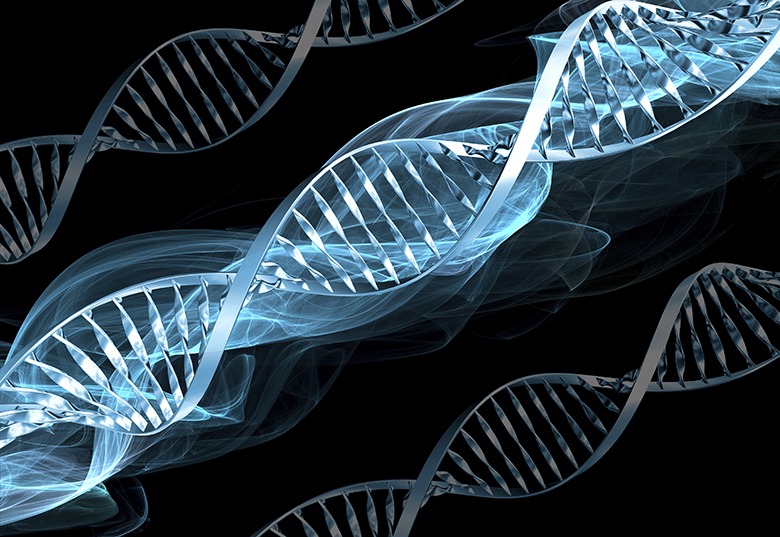Having depression or anxiety is a serious issue. Treatment that is ineffective or brings significant side effects can be devastating — even life threatening.
But more and more, doctors are turning to genetic testing to better care for patients who are experiencing depression, anxiety, attention deficit hyperactivity disorder (ADHD) or psychosis.
“Genetic tests can give us predictions of responses to medications, as well as predictions of side effects with specific medications, for many psychiatric disorders,” says Ronald Burd, M.D., a Sanford Health psychiatrist in Fargo, North Dakota.
Testing on two fronts
“The information provided by genetic tests for psychiatric disorders come in two main categories: pharmacokinetics and pharmacodynamics,” Dr. Burd says.
Pharmacokinetics is how your body metabolizes a medication — essentially, do you require a low, standard or high dose to achieve therapeutic effects.
Pharmacodynamics covers what a medication does to your body.
“This side of testing can show if you’re more or less likely respond, and whether you are more or less likely to have particular side effects of a medication,” says Dr. Burd.
In psychiatry, both of these can be extremely valuable in finding the right prescriptions for a patient.
Looking for a pattern
All together, the genetic tests are reading your genome sequence for specific patterns that have been associated with the efficacy or side effects of medications.
“Genetic information codes for what your body produces,” Dr. Burd says. “If you have the genetic code for curly hair, you get curly hair.”
The same goes for how your body metabolizes and responds to medications.
“If you have the genetic code for specific parts of the serotonin reuptake pump, it may indicate that you’re more or less likely to respond to an SSRI (selective serotonin reuptake inhibitor) antidepressant,” he says.
When your genomic code is compared to the results of other people’s genetic tests, it can tell your doctor if you may need a higher or lower dose of a medication than the average person, or if you’ll have the side effects that other people with similar genetic patterns have had.
“The results tell us how this person’s genome sequence that has this characteristic different than the average person, and what the difference between those two are,” Dr. Burd says. It’s those differences that are catalogued and compared to your test results.
“Something to keep in mind is that genetic tests for these kinds of genes are just statistical predictions,” he says. The results of the individual are compared to the pooled results of a population. “The tests give predictions, not answers.”
Genetic testing isn’t right for all cases
Genetic testing currently gives no information helpful for diagnosing psychiatric disorders, and isn’t likely to be the first step in treatment.
“Only if you’re not responding to a medication as expected, or if you’re having unusually severe side effects — particularly if you’re at risk of being hospitalized — is when it’s time to discuss these kinds of tests so we can head off that kind of intervention,” Dr. Burd says.
“But if you’re feeling OK and responding relatively well to what your doctor has prescribed, genetic testing may not have much additional benefit to you.”
For people who are responding well to current medication, genetic testing would likely only confirm this, not steer your doctor’s recommendations in another direction.
When psychiatry medications are affecting you in ways that are unexpected, or are having no effect at all, a genetic test may help your doctor or psychiatrist pinpoint better prescriptions for you.
A genetic test could show that a complete change in medication may not be necessary — you could just need complementary prescriptions.
For example, if a patient with depression isn’t responding well to medication, Dr. Burd sometimes orders a test to specifically look at their folate metabolism.
“About 3 percent of people have a genetically determined enzyme activity, and the test reveals to me that simply adding that folate vitamin to their regimen may be sufficient to get them back on track,” says Dr. Burd.
Not a why, but a how
Genetic tests are not for diagnosing depression or other psychiatric disorders.
“They don’t change the diagnosis, but they may change the treatment,” Dr. Burd says.
Nor can genetic tests pinpoint why you develop depression.
“Looking at the genome we know so far may be able to tell you if you’re more or less likely to have depression or other mood disorders, but we have no idea where it comes from,” Dr. Burd says, “so that can be disappointing to some people.”
But as sequencing of the human genome advances, he’s hopeful it can help find more answers for psychiatry patients.
“As we get a better awareness of genetic patterns, we may find a particular pattern that’s associated with a particular side effect that we hadn’t appreciated before,” Dr. Burd says.
“Your genes won’t change, but our knowledge about what the genes may mean will change. More information will do a better job of leading us to certain medications, which will be refined over time.”
More stories about genetic testing
- What to know about genetic tests predicting breast cancer
- Personalized health care through genetic testing
- Genetic testing reveals hereditary heart disease
…
Posted In Behavioral Health, Genetics, Health Information
